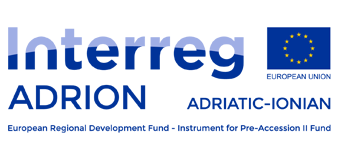Looking ahead: Taking a sneak peek at the new Interreg IPA ADRION Programme
Time will soon come when the new Programme will be officially launched -expected in autumn this year. Before that, we would like to present you some of the novelties that will apply for the next programming period 2021-27. The ADRION taskforce, which is composed of ADRION Partner States representatives, has been regularly convening since 2019 to give shape to the new Programme. So far, during its 14 meetings, Partner States have agreed on the future cooperation area, on the Programme’s policy objectives and fields of funding (Policy and Specific objectives), as well as on the activities and outputs that future projects will be asked to perform and develop. Moreover, the adoption of the two Implementing Acts under the European Territorial Cooperation (ETC) goal by the European Commission has officially defined all Interreg Programmes and their allocations for 2021-27.
So, let’s take a look at the main features of the new Programme.

Aerial view of the road in a beautiful summer forest at sunset in the Balkan Mountains. Credits: Milan Markovic
A new name: IPA ADRION
 First, we will be born with a new name: Interreg IPA ADRION. This is to mark the strong bond of the Programme with the pre-accession countries (IPA), which this time will cover a wider area of cooperation for the access of North Macedonia. In the frame of all Interreg Programmes, IPA ADRION will be actually the only transnational Programme based in the Adriatic-Ionian region, as to highlight its function of a bridge in strengthening the relations with the Western Balkans and factually supporting the EU enlargement process.
First, we will be born with a new name: Interreg IPA ADRION. This is to mark the strong bond of the Programme with the pre-accession countries (IPA), which this time will cover a wider area of cooperation for the access of North Macedonia. In the frame of all Interreg Programmes, IPA ADRION will be actually the only transnational Programme based in the Adriatic-Ionian region, as to highlight its function of a bridge in strengthening the relations with the Western Balkans and factually supporting the EU enlargement process.
An extended cooperation area
 Interreg IPA ADRION will have a larger cooperation area moving from 8 to 10 partner states. The Programme will include, besides the former ones, North Macedonia, and the Republic of San Marino. The new configuration will also overlap with the EUSAIR participating countries so that both bodies will be perfectly aligned.
Interreg IPA ADRION will have a larger cooperation area moving from 8 to 10 partner states. The Programme will include, besides the former ones, North Macedonia, and the Republic of San Marino. The new configuration will also overlap with the EUSAIR participating countries so that both bodies will be perfectly aligned.
The new composition
Croatia, Greece, Slovenia and Italy with the regions of Friuli Venezia Giulia, Veneto, Lombardy, Emilia-Romagna, Marche, Umbria, Abruzzo, Molise, Puglia, Basilicata, Calabria and Sicilia, as well as the two autonomous provinces of Trento and Bolzano. Five IPA beneficiaries: Albania, Montenegro, North Macedonia, Serbia, one potential candidate country (Bosnia and Herzegovina) and a third country, Republic of San Marino.
More resources, more funded projects
 Considering its larger cooperation area, Interreg IPA ADRION will also benefit from more financial resources, especially for the non-EU countries that will make up the new Programme. This will be an opportunity for the potential beneficiaries of those countries to become also more engaged with project coordination. The EU contribution will reach 136,6 MEUR that will result into more granted projects.
Considering its larger cooperation area, Interreg IPA ADRION will also benefit from more financial resources, especially for the non-EU countries that will make up the new Programme. This will be an opportunity for the potential beneficiaries of those countries to become also more engaged with project coordination. The EU contribution will reach 136,6 MEUR that will result into more granted projects.
Our main vision
To better outline the future aims and funding scheme of IPA ADRION, Partner States has taken stock of the project results and outcomes of the Thematic Clusters developed during 2014-2020. Moreover, quite comprehensive consultation with the main stakeholders and experts was conducted in order to get the full picture of the economic, social, and cultural assets yet challenges of the area.
As previously introduced, the support to the EU enlargement process will be central in the new Programme. This is confirmed by the presence of 5 IPA countries. The inclusion of North Macedonia both in the macro-region and in the new Programme’s area will contribute to boosting regional cooperation and good neighborly relations. Territory-wise, North Macedonia shall further strengthen the connections between the sea basin and the hinterland to highlight the commitment of the Programme for both marine and terrestrial growth. Additionally, the entrance of a third country, the Republic of San Marino, closes the territorial gap on the Western side of the Adriatic Sea basin.

A cropped shot of hands painted to look like the earth – Yuri Arcurs
As regards to the thematic fields of intervention, if sustainability was a keyword of ADRION 2014-2020, in the new Programme green policy will even play a major role.
Indeed, IPA ADRION will strongly support the EU Green Deal and contribute to meeting its targets by devoting a large share of its resources to fund projects in the field of environmental protection, biodiversity, green mobility, and green transport.
Moreover, due to its transnational nature, IPA ADRION will continue to support the implementation of the macro-regional strategy EUSAIR, especially through the embedding of EUSAIR flagships which have been mirrored along with the selection of the Programme Policy objectives, Specific objectives and proposed indicative actions. Additionally, through the Interreg Specific objective ISO1, IPA ADRION shall further continue supporting the EUSAIR governance.
Future funded areas
As previously announced on our website, the Programme will fund the here below the following Policy and Specific Objectives:
A more competitive and smarter Europe by promoting innovative and smart economic transformation and regional ICT connectivity (PO 1)
- Developing and enhancing research and innovation capacities and the uptake of advanced technologies
- Developing skills for smart specialisation, industrial transition and entrepreneurship
A greener, low-carbon transitioning towards a net-zero carbon economy and resilient Europe by promoting clean and fair energy transition, green and blue investment, the circular economy, climate change mitigation and adaptation, risk prevention and management, and sustainable urban mobility (PO 2)
- Promoting climate change adaptation and disaster risk prevention, and resilience, considering ecosystem-based approaches
- Promoting the transition to a circular and resource-efficient economy
- Enhancing protection and preservation of nature, biodiversity, and green infrastructure, including in urban areas, and reducing all forms of pollution
- Promoting sustainable multimodal urban mobility, as part of a transition to a net-zero carbon economy
A more connected Europe by enhancing mobility (PO 3)
- Developing and enhancing sustainable, climate-resilient, intelligent, and intermodal national, regional and local mobility, including improved access to TEN-T and cross-border mobility
Better cooperation governance (ISO 1)
- Support the EUSAIR governance and macro-regional implementation
- Promote exchanges and capacity building, among public administration to support the enlargement process, key EU goals like EU Green Agenda, the Western Balkans Agenda, the Western Balkans agenda on innovation, research, education, culture, youth and sport, EU Digital Agenda, as well as other relevant macro-regional topics (e.g.: horizontal topics, technical topics linked to EUSAIR action plan).
- Support networks, platforms and clusters to facilitate the exploitation and spread of knowledge, experiences as well as to encourage cooperation with mainstream programmes, Interreg or programmes directly funded by the European Union
What type of actions are projects expected to develop?
Future funded projects will be asked to translate into practical actions and develop solutions in the above-mentioned areas of intervention.
A package of activities will include, among others the enhancement of various forms of cooperation to improve cohesion through transnational strategies, action plans, regional and national policies, exchange of experience, capacity building and pilot actions as well as digital & learning tools in the following fields:
- Health and quality of life, energy, sustainable tourism and creative economy, ICT systems and technologies, Smart Specialization Strategies (S3), climate change adaptation, circular economy, and natural protected areas, disaster prevention and responses to natural and man-made disaster, demographic change, brain-drain, aging society, migration
- use of big data for modeling, early forecast and warning systems, plastic discharge, environmental performance and energy efficiency including ports and related infrastructures
- Maritime Spatial Planning, marine litter, waste management, Integrated Coastal Zone Management, food and traditional agricultural products, food safety, air, water, and soil pollution, nature conservation including natural terrestrial and sea habitats and Natura 2000 sites, climate change resilience, sustainable fishery and aquaculture practices
- e-services
- Intelligent transport system solutions, new mobility services, sustainable urban mobility plans (SUMPs), SMEs development and modernization, Motorways of the Seas (Mos) concept, TEN-T network accessibility, alternative low carbon and natural fuels, Short Sea Shipping (SSS)
